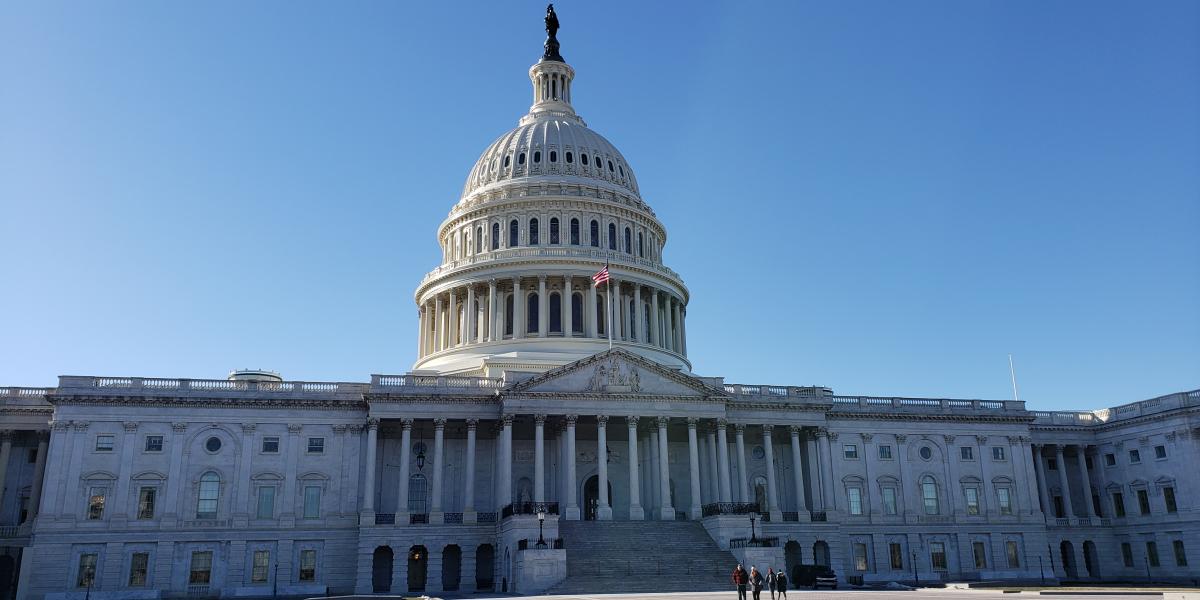
It is hard to believe that the U.S. was on the brink of enacting climate change regulation almost ten years ago. That policy, known as the Waxman-Markey bill, was and remains the most promising and prominent climate policy considered in the U.S.
Had it been implemented, Waxman-Markey would have set the U.S. down a path of significant decarbonization, requiring nation-wide emissions to be 17% below 2005 levels by 2020, declining further to 83% below 2005 levels by 2050.
Waxman-Markey passed the House of Representatives during the summer of 2009, the only U.S. climate bill to pass either Houses of Congresses. This was immediately followed by a “perfect storm” of events that led to the bill’s ultimate demise. Often cited reasons include the Democrats’ loss of a filibuster-proof Senate majority following the death of Senator Ted Kennedy; President Obama’s strategic decision to prioritize health care over climate policy; and the rise of the Tea Party. By the summer of 2010, Democrats, short just a handful of votes, ultimately had to withdraw Waxman-Markey from the Senate floor.
In a recent Nature Climate Change paper, Ashwin Rode (University of Chicago and a former UCSB PhD student) and I return to this historic moment to examine another obstacle that was widely cited by the media: political lobbying by corporate interests (see also Nature Climate Change’s News and Views and editorial). At the time, Waxman-Markey was called “the sum of all lobbies” with companies spending over $700 million on its lobbying, or roughly 14% of all lobbying spending between 2009 to 2010.
The research challenge is connecting dollars spent lobbying to its effectiveness. In most countries, data on lobbying spending is not publicly available. Even though this data is available in the U.S., it is not obvious whether a company that lobbies stands to gain or lose from the policy and by how much.
We circumvent this problem by turning to financial markets, in particular prediction and stock market data. A prediction market is a betting market where participants bet on the likelihood of an event happening. The power of a prediction market is that it captures, in real-time, the market-held belief that some event will happen. In 2009-2010, there was a prediction market tied to the likelihood that the U.S. would pass Waxman-Markey. Our analysis combined this market with stock market data to see if stock prices went up (i.e., a winner) or down (i.e., a loser) for firms that lobbied on the policy when prediction markets indicate that Waxman-Markey is more likely to pass (see another application here).
Our statistical analysis suggests that firms expected to lose from the bill’s implementation were more effective at lobbying than firms expected to gain. Interpreting these results through a game-theoretic model of political lobbying, we calculate that total lobbying by companies reduced the bill’s chances of being enacted by 13 percentage points, representing $60 billion in expected climate damages when valued at the social cost of carbon.
Fortunately, there’s a glimmer of hope. Our findings also suggest a path towards more “politically-robust” climate policies. We show that subtle changes in how revenue from market-based climate policies (i.e. cap and trade programs) is allocated can alleviate political opposition and increase the chance of adoption. That is, the same insight that lobbying undermines climate policy enables the design of more “politically-robust” policies.
Waxman-Markey’s failure continues to cast a long shadow over U.S. and global climate policy. Take the Paris Agreement for example. Its bottom-up, “pledge-and-review” structure, in which countries suggest their own climate mitigation efforts, was designed in part so the U.S. could participate without binding domestic climate legislation. Similarly, the current administration’s efforts to dismantle President Obama’s Clean Power Plan is facilitated by the fact that there was never Congressional legislation behind the Clean Power Plan.
Lessons from Waxman-Markey can help shape climate policy debates today, especially in the redistribution of revenue. In an earlier emLab blog, I write about how today’s proposed climate policies debate over how to use carbon tax revenues to address inequality and political feasibility. We need not look too far back to see what has and has not worked.



